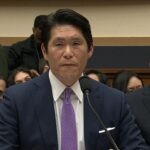
Published October 5, 2022
hen House minority leader Kevin McCarthy unveiled the GOP’s Commitment to America last month, he compared its release to the famous 1994 “Contract with America.”
But the analogy doesn’t hold. Newt Gingrich and Dick Armey offered specific, tangible pieces of legislation they promised to bring up for a vote if they were given the reins in Congress. The “Contract” included a $500 child tax credit, stronger laws against child pornography, and legislation that would protect parents’ rights, as well as other specific anti-crime, job creation, and tort reform measures.
By contrast, McCarthy’s “Commitment” hovers comfortably at the 30,000-foot level of abstraction, offering vague sentiments and well-intentioned promises rather than specific pieces of legislation.
Generalities won’t cut it. To be compelling, a proactive policy agenda should address head-on the cultural and economic forces undermining America’s families. After all, there is no shortage of potential areas to address.
The 2022 American Family Survey, released this week by the Brigham Young University’s Center for the Study of Elections and Democracy and the Deseret News (where I am a contributor) asked Americans to name the top three challenges facing families today.
Many parents, of course, are worried about the cultural and economic pressures weighing on their individual families. Half of Americans polled said they wished they could spend more time with family, and a full one-third said they struggle to balance home and work life.
But they are also worried about the broader institution of marriage, and want to see as many children as possible benefit from the stability of a two-parent household. Four in 10 adults cited the cost of raising a family as an important stress on families; the same fraction cited a worrying lack of discipline in family life. Nearly a third of adults listed the demands of work on parents, and over a quarter cited the share of children growing up in single-parent homes, as challenges that weaken family life in today’s America.
These poll findings back up the vision for family policy recently outlined by a who’s who of conservative intellectuals, joined by thoughtful up-and-coming policy analysts, in a statement of principles my colleagues at the Ethics and Public Policy Center and I released.
Dozens of influential signatories, including Ramesh Ponnuru of National Review, Josh Craddock of the James Wilson Institute, Catherine Glenn Foster of Americans United for Life, and Creighton University’s Charles Camosy, signaled their support for an approach to family-first policymaking that goes beyond lip service and seeks to actually make having and raising a child in America a little easier.
The statement lays out some hallmarks for what an authentically pro-family public policy agenda might look like. Policymakers would “develop labor policies that create flexibility for parents without jeopardizing their financial security” and “recogniz[e] the family as an economic institution,” getting rid of marriage penalties which make it more financially advantageous for low-income couples to cohabit rather than tie the knot.
Recognizing the cost of parenthood and declining fertility rates, the statement encourages policymakers to “pursue approaches to paid leave that provide a baseline of protection for new parents from the demands of the workplace” and “advance policies that would make having children more affordable and achievable.” Most importantly, the EPPC statement of principles for pro-family policy recognizes the realities of a post-Roe America, and the need to make sure moms and their babies have the resources and support they need.
Parents, of course, bear the primary and ultimate responsibility in caring for and raising their children. But as the statement indicates, giving them the space to do so, “shielded from inappropriate state intrusion or undue market pressures,” may require more proactive pro-family policies than some conservatives have traditionally embraced.
This document lays out specific principles, but leaves to the politicians how best to turn them into legislative text. One welcome contribution to the pro-family conversation was offered last week by Republican Study Committee chairman Jim Banks of Indiana, who released more than 80 recommendations for a more authentic pro-family approach to policymaking. Many of the ideas have already been turned into legislation, offering practical steps to improve families’ lives.
That level of specificity is missing from most national Republicans’ playbooks. Gauzy language might sound good in a focus group, but it gives very few voters a reason to vote for a candidate, rather than just against the other one. Republicans who want to be the party of parents should be clear about their ideas that make parents’ lives easier, from addressing the cost of child care to making it easier for parents to raise children according to the values they hold dear.
Instead of contenting themselves with vague platitudes, Republicans should think about the ultimate aims of politics and offer voters policies that can advance them. The EPPC statement of principles offers a sound vision for the former; the Study Committee family policy agenda is a productive first step towards the latter (though more work will need to be done).
In 1994, Republicans rode the strength of the Contract with America to gain 54 seats, taking control of the House of Representatives for the first time in 40 years. Such a swing is unlikely this fall. But the GOP could learn a lesson from history in embracing the kind of specificity in Rep. Banks’ pro-family agenda, rather than sitting back and relying on generic talking points.
Patrick T. Brown is a fellow at the Ethics and Public Policy Center, where his work with the Life and Family Initiative focuses on developing a robust pro-family economic agenda and supporting families as the cornerstone of a healthy and flourishing society.
Patrick T. Brown is a fellow at the Ethics and Public Policy Center, where his work with the Life and Family Initiative focuses on developing a robust pro-family economic agenda and supporting families as the cornerstone of a healthy and flourishing society.












